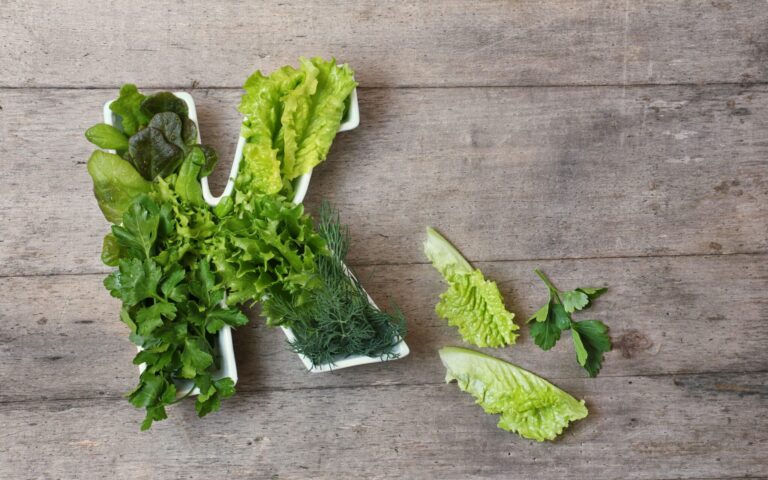
Vitamin K is a real unsung hero in keeping the human body fit and well, and it’s incredibly easy to incorporate into your diet. In this piece, we’ll be looking at the foods that contain it and why it’s such an important component in a person’s diet.
Vitamin K is fat-soluble and takes 3 forms:
K1 (phylloquinones): this is the most prevalent K vitamin in food, found principally in plants.
K2 (menaquinones): found in animal products like cheese, eggs and meat.
K3 (menadione): the artificial version of K vitamin that’s found in supplements.
The ‘K’ in vitamin K originates from the German word ‘koagulation’ (or coagulation) which means blood clotting.
Why do we need vitamin K?
Because it helps many of our bodily functions stay healthy. Not only does it help prevent blood clots, but it’s also key in repairing our bones and helping them to maintain good structure.
Studies carried out by the Brigham and Women’s Hospital and Harvard Medical School found that women who get a sufficient amount were less likely to break a hip. There is also ongoing research into the possible relationship between good K vitamin levels and preventing conditions like heart disease, prostate cancer and Alzheimer’s.
Does vitamin K have a rapport with other vitamins?
Like most other vitamins, the benefits of the K vitamin are best reaped when it is combined along with other vitamins. It works together with vitamin D to maintain calcium levels in the body and is better absorbed when consumed with fats. Pair vitamin K-rich foods with healthy unsaturated fats, as this helps the body absorb it up to 3 times more effectively.
Which foods contain vitamin K?
There are plenty of tasty foods to incorporate into your daily diet to make sure you’re getting enough vitamins. These include:
- Kale
- Mustard greens (cooked)
- Spinach (raw)
- Broccoli
- Brussel sprouts
- Kiwi
- Prunes
- Hard cheeses
- Avocado
- Beef
- Chicken
- Cheeses such as parmesan, blue & edam cheese
Is there anyone at risk of vitamin K deficiency?
As these vitamins are present in so many of the foods we eat on a daily basis, deficiency is rare. This said, there are people with certain conditions that make it harder for the body to absorb it.
Gastrointestinal disorders like cystic fibrosis, Crohn’s disease and gallbladder disease don’t absorb it very effectively and those with these conditions benefit from taking supplements. Taking antibiotics for a prolonged period can also affect K levels, as they destroy the bacteria that create them.
If you’re vitamin K deficient, you might experience symptoms like blood in your urine and stools, black and tarry stools and bruising of the skin. See a doctor right away if you experience any of these symptoms, like functions as the liver and kidneys can become affected as a result.


